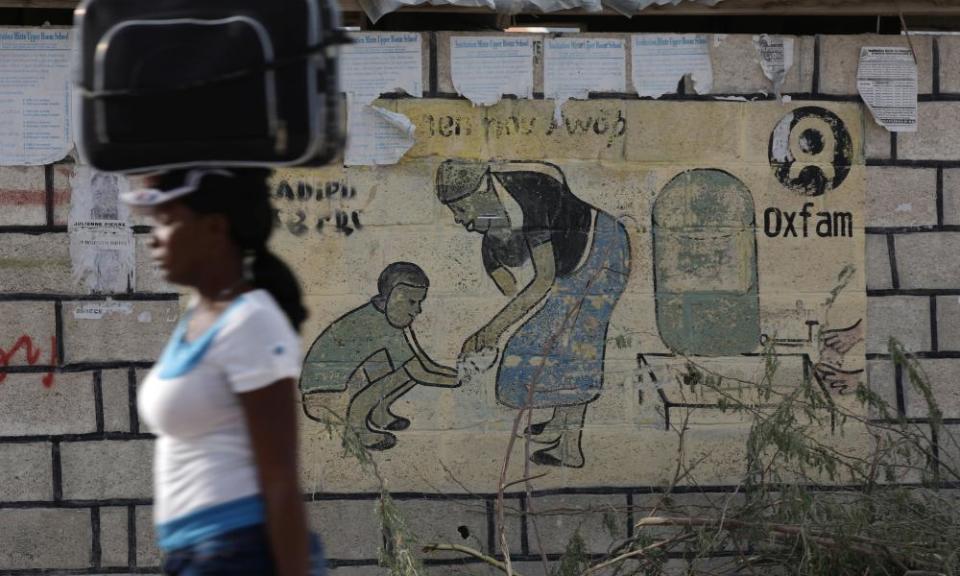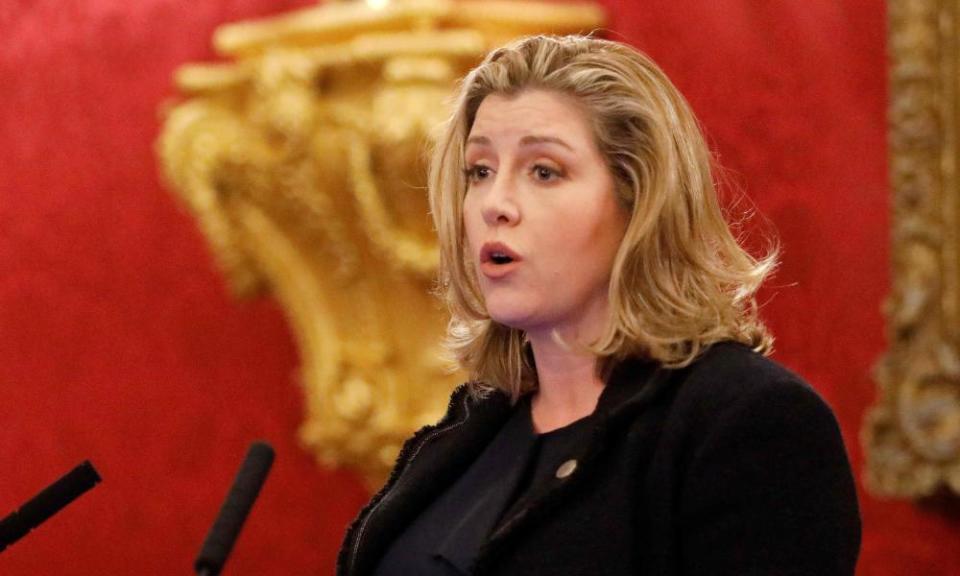We interrupted Penny Mordaunt to demand aid sector abuses end now

Eight months on from the Oxfam “sex scandal”, as the media like to refer to it, the Department for International Development (DFID) is holding its international safeguarding summit. As Penny Mordaunt, the international development secretary, was announcing the creation of a computer database – paid in part by £2m of British aid money – to store the names of sexual predators working in the sector, she was interrupted by my colleague from NGO Safe Space, Alexia Pepper de Caires.
Pepper de Caires, a former Save the Children employee and whistleblower, was speaking on behalf of the women who want to make real change within the sector, but feel their voices are being silenced. She quoted Paula Donovan, who had refused to take part in the summit and said “We do not need fancy new systems, we do not need technology, we need systematic change. We need to understand the sexism, the racism and the abuse of power that happens from the very top of the leadership”.
The meeting takes place in the shadow of the #AidToo movement – and of revelations about sexual harassment, sexual abuse and misconduct in the aid and charity sector, triggered by whistleblowers who went public about the issues at Oxfam. However, the solution to ending sexual exploitation in the aid and charity sector beyond Oxfam continues to be framed through the lens of safeguarding and IT systems. As we have been arguing for years, the focus instead should be on tackling the huge power imbalances, structural racism, sexism and patriarchy embedded in a neocolonial aid system that allows sexual predators to do harm, including to the very people it professes to assist.
First reported on the front page of Wednesday’s Times, the launch of a “Global list of charity sex predators” will apparently use Interpol style alerts and notices will be issued over those “considered to be a threat to public safety”.
Yet no amount of snazzy IT systems will stop sexual abuse. It is only through an independent mechanism holding power (currently overwhelmingly white, male and privileged) to account in this sector that victims and survivors will be protected. Until those accused of abuse are referred to the authorities rather than to opaque internal HR systems designed to protect organisations, there will be no change.

In many of the cases that have become public so far, perpetrators were hidden in plain sight. The accused are senior men who were sent to work with some of the most vulnerable women, children, boys and men in the world – where the colossal imbalances between those who have nothing and those sent out to “save” them are at the heart of why sexual exploitation takes place, and why these men have impunity to carry out the abuses they do.
If the aid sector is serious about getting its house in order over sexual exploitation and abuse (SEA) – and the jury is out on whether that really is the case – it needs to look inwards and detoxify the cultures and power structures that turn a blind eye to what is going on inside these organisations. It needs to listen to, and act on, the professional specialism and advice of feminists who have worked in the sector for decades.
And finally, if the sector really wants to tackle sexual abuse, it needs to provide funding for follow-up and aftercare, from paying medical bills to providing independent counselling and mental health support. It needs to contribute to a legal fund to help victims and survivors find pathways to justice and provide compensation to victims, especially those exploited in the global south. Most urgently, it needs to ensure that victims and survivors feel believed and heard.
• Shaista Aziz is a journalist, standup comedian and former aid worker

 Yahoo News
Yahoo News 